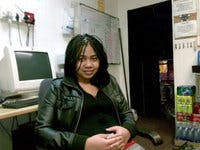Learning to Speak
Jan 21, 2015
Story
For me personally, the major barrier I have to effecting change in the areas of my community where I feel most needs it is the feeling that I sometimes get that because of language and other factors I may be viewed as an outsider. How do I know who needs help from me and what kind of help they want or need? How do I empathise and try to offer this help without coming across as condescending? During the 2010 FIFA World Cup I briefly gave young Xhosa women media training and because they were comfortable with their own language, they often just spoke it naturally to me, forgetting I did not know what they were saying.
My first solution is to learn the languages, to try to learn as much Xhosa and Afrikaans as I can because I feel there is so much more information to be gained not only from putting someone in a space where they are more comfortable talking to you because it is in their own language, but also through appreciating the subtleties that colour and add meaning to different languages that cannot always be explained in English. For me personally there are quite a few words in Shona that I would have no clue how to translate into English, or if able they would lose their original effect.
As I have discussed before in my journal, Pulsewire gives me ready made audience of people who have the similar interests, who will take the time to read and appreciate what I have to say. This gives me motivation to overcome the fears and challenges I face and communicate as effectively with people so that I can be as clear and accurate as possible with people who are interested in the information I can provide.




